- 5 Tips To Finding Peace Within Yourself
- The Do’s and Don’ts of Learning How to Accept Yourself
- How to Find Your Inner Peace and Transform Your Life
- 8 Benefits of Having an Open Mind and How to Get One
- Learn How To Be A Happier Person
- What Is The Meaning Of Life?
- Laws of Abundance – The Riches of Love and Joy
- How to Be Laid Back By Following These 9 Simple Strategies
- The meaning of confucius’ golden rule – 4 practical ways of living it
- 3 methods of unleashing the power of contentment in your life
An Insomniac’s Search for Answers: “Why do I have trouble sleeping?”
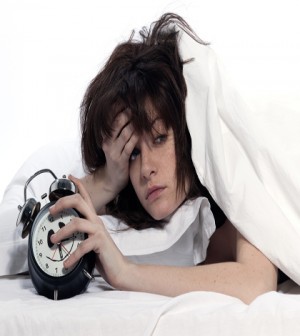
If you’ve ever experienced difficulty in falling asleep or wake up feeling sleep-deprived and enervated, chances are you’re suffering from insomnia. Insomnia is a common complaint – particularly in teenagers and adults – that may be triggered by any number of factors. It may even be a symptom of another ailment altogether. To get to the root of the problem – and begin looking for an appropriate solution – you will have to ask yourself a number of pointed questions.
Do I practice proper sleep hygiene?
Trouble sleeping can simply be inadequate “sleep hygiene,” or a lack of deliberation on your part to tailor your environment and routine towards sleeping soundly. It is most important that you feel comfortable in the bedroom. Your preferences come into play, but you will certainly benefit from sleeping in a proper sized bed with the right amount of firmness, coupled with soft sheets and pillows. Scents should be soothing, such as lavender, versus energizing, such as lemon. The temperature of the room should be cool, neither too hot nor too cold. Light and sound should be mellow, or turned off entirely. It is also best to cultivate habits such as banning a television, laptop, phone or even a particularly noisy clock in the bedroom, so as not to be disturbed.
Do I lead a healthful lifestyle?
Lifestyle choices influence the sleep cycle. Some people choose to work night shifts, which reverses the internal biological clock, being awake for most of the night and asleep for most of the day. Frequent travel also disrupts sleeping patterns and may result in lost sleep or jet lag. If by necessity you take the night shift or travel, it’s best to take regular breaks and power naps, and minimize shift changes or disruptions of sleeping routine. Alcohol should not be used to induce sleep as one tends to develop immunity to its sedative effects over time; moreover, it can actually lead to frequent awakenings or fragmented sleep. Similarly, caffeine and nicotine are detrimental to sleep.
Am I taking any new medication?
Some medications are not conducive to sleep, including allergy medicines and heart and blood pressure prescriptions. Some antihistamines do tend to make you feel sleepy, but not for long – these also have side effects such as dizziness. Decongestants and nasal corticosteroids (such as nasal sprays) are non-sedating and increase alertness. Steroids also will make you feel hyper rather than lethargic. It’s best to be aware of all possible side-effects of any medication you are taking, especially in combination with other drugs.
Am I having difficulty breathing or feel unwell?
Insomnia may be a symptom of another illness entirely. If you are having difficulty breathing, it follows that your sleep will be of poor quality. Anything from a stuffy nose because of a cold, to shortness of breath due to asthma, to chronic obstructive pulmonary disease, can result in broken sleep. Heartburn, also known as gastroesophageal reflux disease, makes sleeping difficult. Other ailments that are associated with insomnia include Parkinson’s disease, Alzheimer’s disease, and hyperthyroidism. Insomnia and a general feeling of lethargy during the day could also be a symptom of a more serious sleeping disorder called sleep apnea, whereby you have difficulty breathing while asleep and may in fact stop breathing or experience paralysis at intervals during the night. Suffice to say that if you have trouble sleeping for several nights in a row, experience excessive fatigue, or also feel other aches and pains on top of sleep deprivation, it is best to consult your doctor.
Am I feeling particularly stressed or anxious?
The most common cause of insomnia is stress. If you have recently suffered a traumatic experience (such as bereavement or a breakup) or experienced a change (such as transferring to a new residence, workplace or school), you may suffer from temporary insomnia as you try to make adjustments to your new situation. Before you start imagining daunting scenarios justifying your insomnia, simply examine your emotions. Have you recently experienced a life-changing event? Are you feeling particularly worried about anything? Do you ponder the events of the day all night long? A spot of reflection, or better yet, meditation, may sort out your disorderly thoughts, give you deeper insight into what is bothering you, and help you settle down. At the very least, you will learn a sleep remedy focused on breathing and relaxation techniques. At best, given that serotonin depletion has been linked to insomnia, meditation practice gives you the advantage of increasing your brain’s production of serotonin. When stressed, melatonin levels also drop; however, meditation boosts melatonin, allowing for sound sleep and an improved mood.







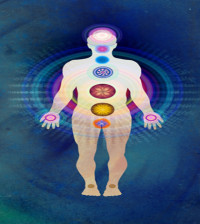
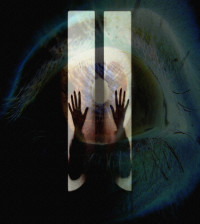

























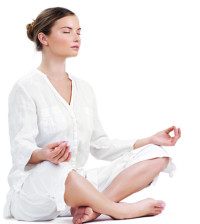

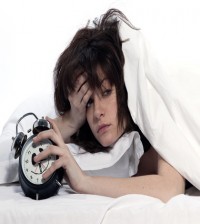



You must be logged in to post a comment Login